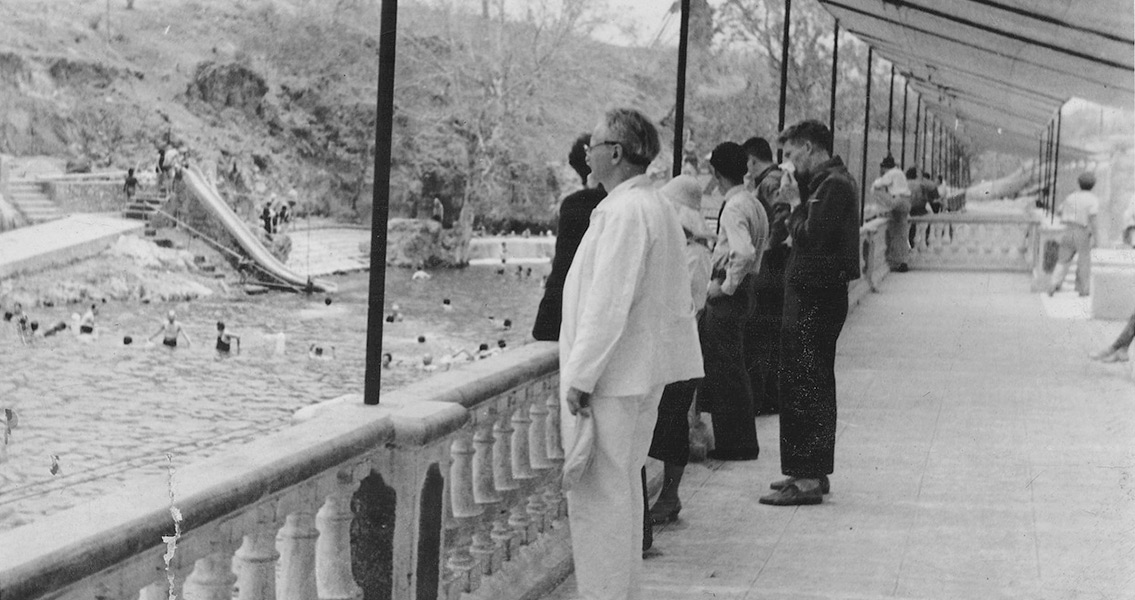<![CDATA[Leon Trotsky was attacked with an ice-axe in his compound just outside Mexico City on 20th August, 1940. Trotsky, who had been living as an exile from the Soviet Union, died from his wounds the following day. An important Communist agitator, theorist and organiser, Trotsky played a key part in the Russian Revolution and the consolidation of Bolshevism in the years after 1917. Following the death of Vladimir Ilich Lenin in 1924, Trotsky lost a battle for power with Stalin, leading to his removal from all positions from power and eventual exile. Trotsky was born Lev Davidovich Bronstein in Ukraine on 7th November, 1879. His parents were successful Jewish farmers, affording Trotsky a good education. His fascination with Marxism developed reasonably early, during his last year of school, and in 1897 he helped found the South Russian Workers' Union. Within a year his revolutionary activities had seen him arrested, tried, and exiled to Siberia. There he married Aleksandra Sokolovskaya, a fellow revolutionary, and fathered two daughters with her. In 1902 he managed to escape Siberia using a forged passport, the name on the false document was Leon Trotsky, which would stick with him for the rest of his life. Following his escape, Trotsky made his way to London where he started to work with other exiles as part of the Russian Social Democrats. Trotsky's firm convictions on the path socialism and communism should take became apparent at the Second Congress of the Russian Social Democratic Workers' Party in Brussels, in 1903. By this point Russian communism had become dominated by two major camps - the Mensheviks who advocated a democratic approach to socialism, and the Bolsheviks who held a much more aggressive, revolutionary view. Trotsky's decision to side with the Mensheviks brought him into conflict with the Bolshevik Vladimir Ilich Lenin. Trotsky returned to Russia during the 1905 Revolution, becoming a leader in the movement against the state. During the clampdown towards the end of the year he was arrested, and again deported to Siberia. In 1907 he fled prison for the second time, and spent the next years living in cities across Europe and the United States, contributing towards various Russian Revolutionary journals. The outbreak of the 1917 Russian Revolution saw Trotsky once again return to Russia. Becoming an increasingly important figure in the Bolshevik party, he was instrumental in the seizure of St. Petersburg, and following Lenin's taking control of the Bolsheviks, Trotsky became the de facto military leader of the revolutionaries. During the Revolution's consolidation Trotsky, now appointed War Commissioner, set about building up the Red Army, something which proved vital in repelling counter revolutionaries in the Russian Civil War. In the early 1920s Trotsky and Stalin began to compete for influence. Although Lenin publicly lent his support to Trotsky on a number of occasions, Stalin had used his position as Central Committee General Secretary to build allies against Trotsky. When Lenin died in 1924, Trotsky suddenly found himself isolated and being pushed further and further away from influence. A moment hugely important for the history of the Soviet Union over the next decades, the comparatively moderate Trotsky, who had been an influential critic of some of Stalin's policies, was ultimately forced to leave the country in 1929 by the much more radical and extremist new leader. In the aftermath of his banishment the full power of Stalinist Revisionim came to the fore. Not only had Trotsky been discredited, his past achievements were slowly wiped from the history books. In exile he traveled the world looking for a safe place to stay, eventually settling in Mexico. Through the 1930s he continued to publish works on Communism, while also criticising Stalin and his regime. He was declared an enemy of the revolution in absentia during the treason trials of 1936 -38, and in 1940 Ramón Mercader, a Spanish Communist who had won the trust of the Trotsky household, attacked him as he sat in his study. Mercader, who was later found to be an agent of the Soviet Union's Secret Police, was sentenced to twenty years of imprisonment - the maximum term for murder under Mexican law.]]>
Trotsky Killed in Mexico
